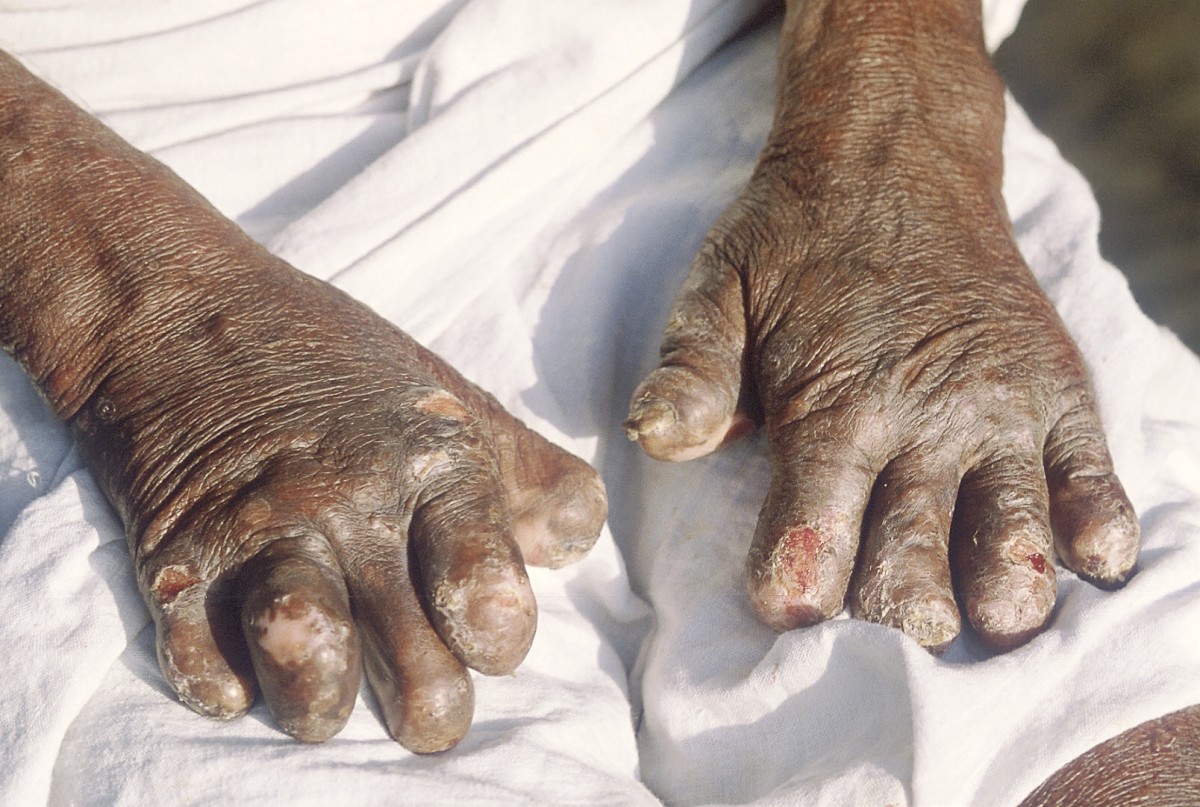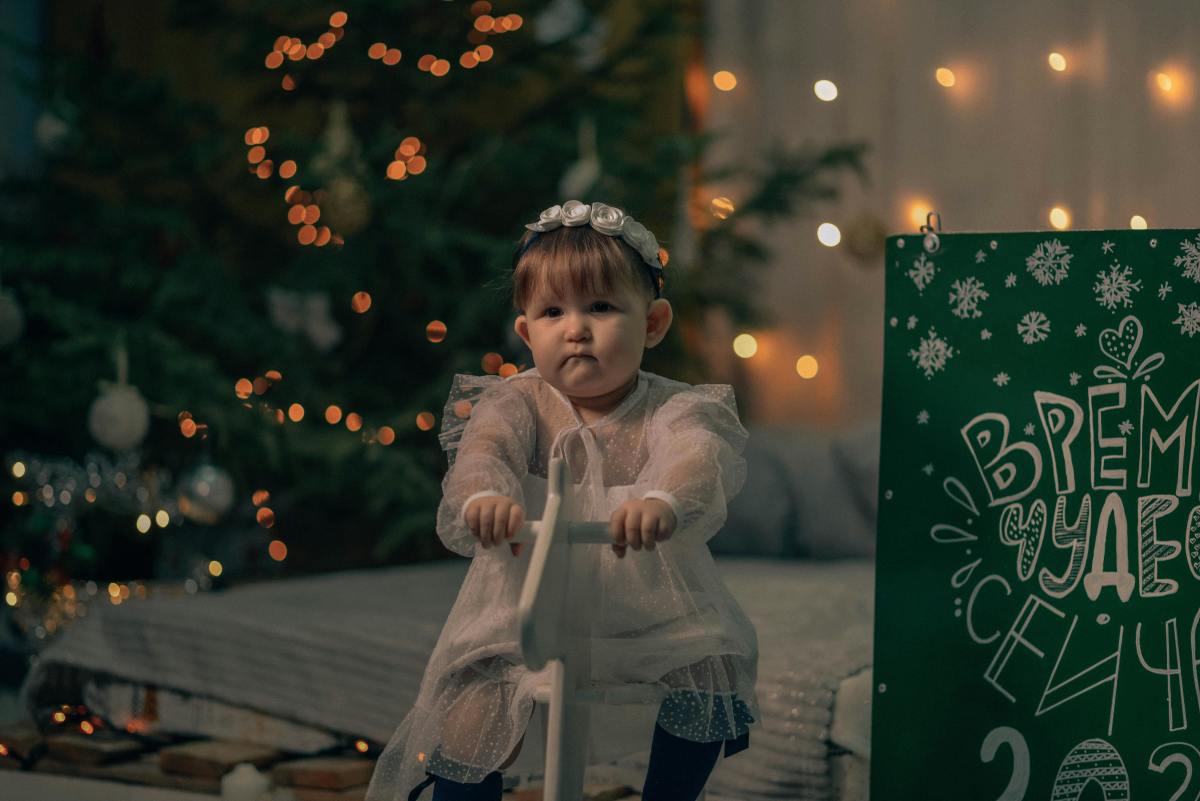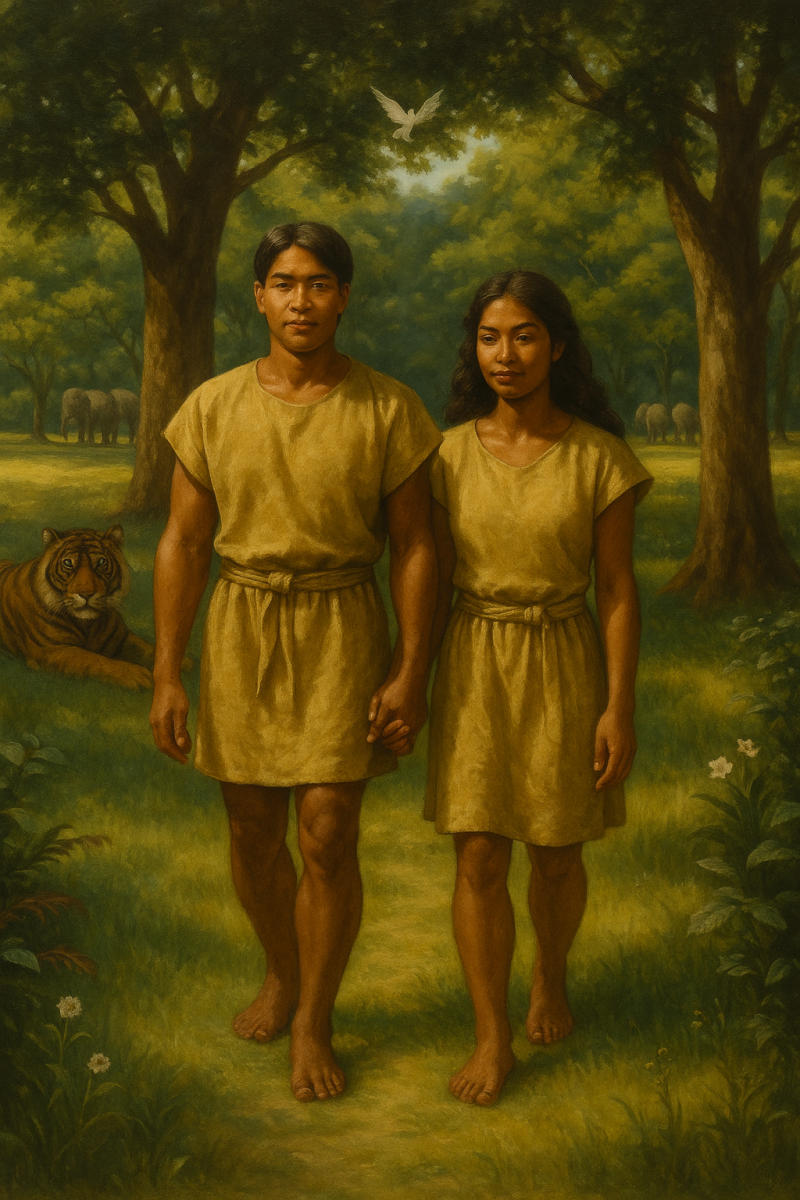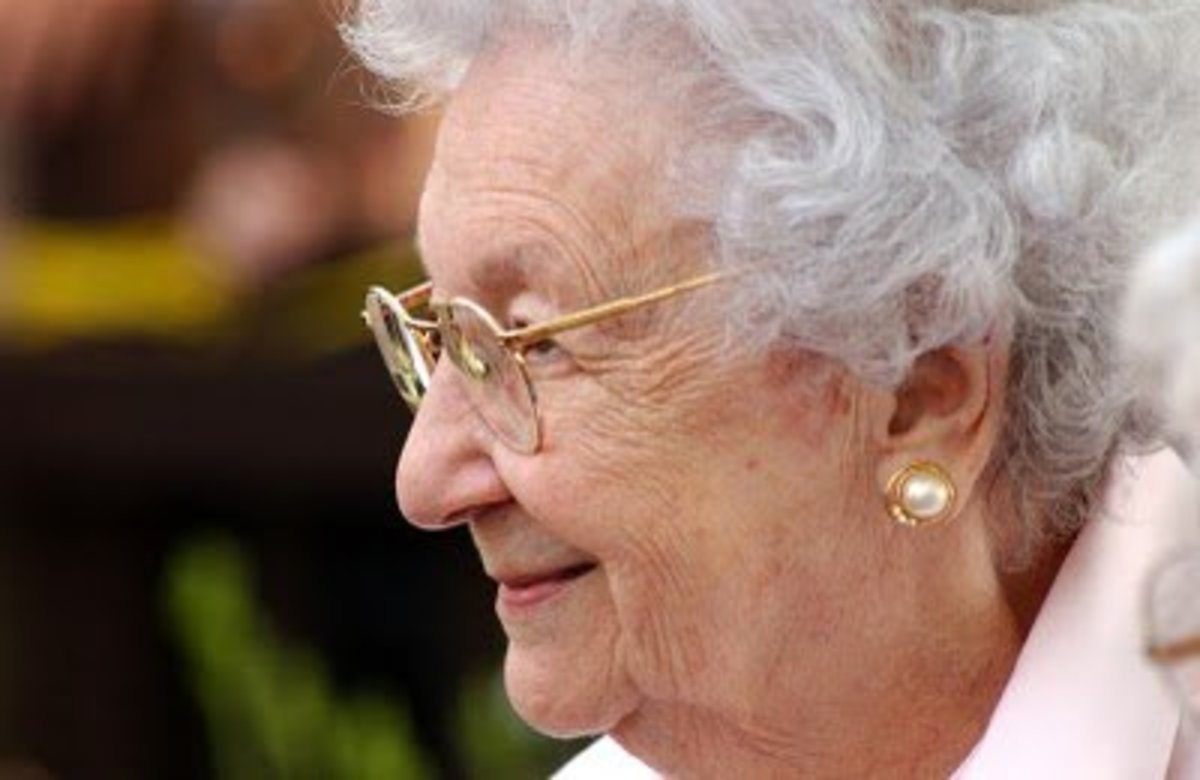- HubPages»
- Books, Literature, and Writing»
- Books & Novels»
- Nonfiction
Biographical - Once Upon A Throne (Part IV)
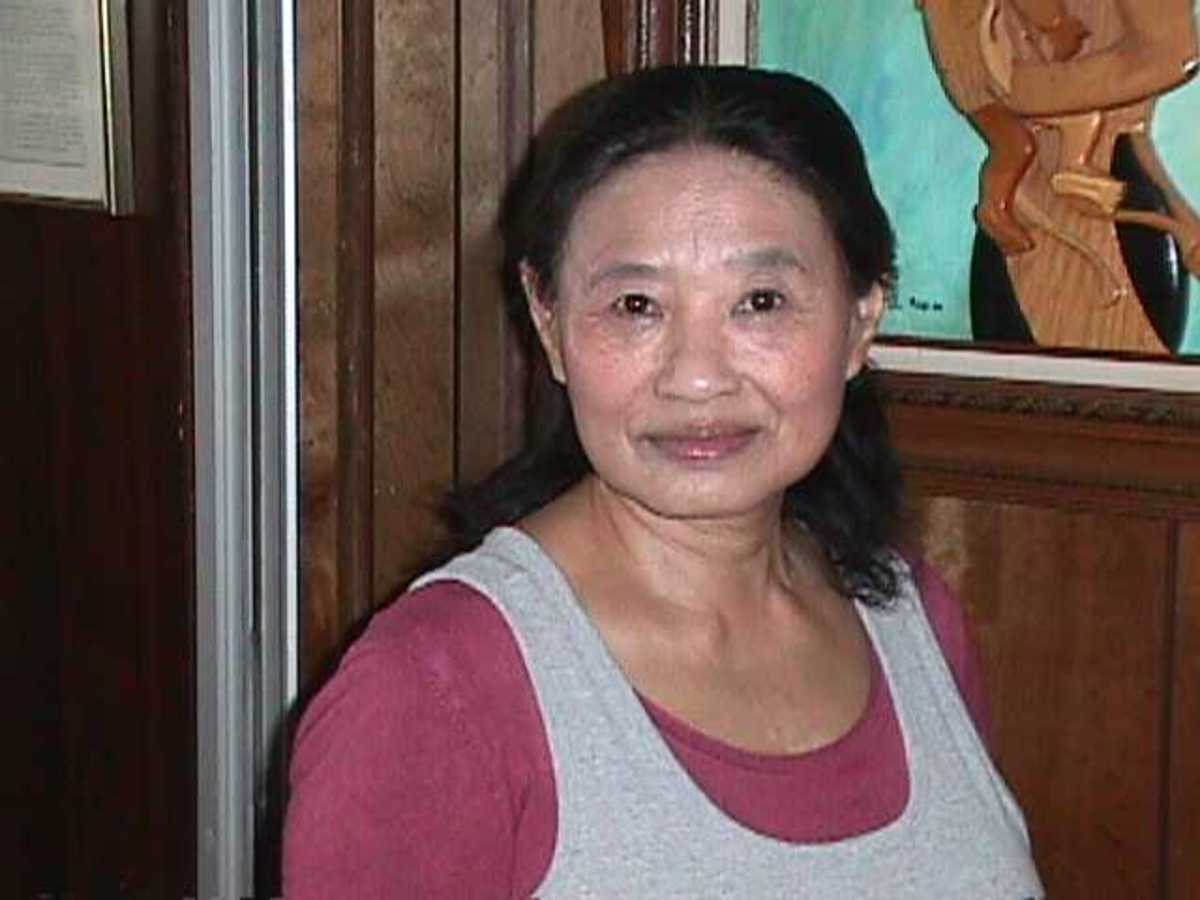
Continuing one woman's story....
Chapter 4
"To call the area 'a leper colony' in the sense of an isolated island separated from the rest of humanity, such as was the unfortunate state of the Hawaiian lepers at one time, would be inaccurate. Those suffering from that disease in southern Laos came to an area then the size of a rough circle two miles across. The lepers lived in what would best be described as sheds made of leaves and other building materials native to the area. We had no 'hospital' to work in, but some shelter from the elements more like a front line military field hospital. All our 'professional' supplies were flown in two to three times a year, and in the three years I served these lepers, I never left this small area. Their needs were too great.
"In a typical day I was up by sunrise, worked my garden area, washed myself and my clothes, ate a modest breakfast, packed my knapsack with water, a snack, and the medical supplies I would need during the day, and I was off making the rounds.
"I began raising a pig for meat. The pig, by some genetic link to his ancestors, thought that he should work in the garden, too, with the result that discipline was called for. I fashioned a switch from the thin branch of a tree, and I drew a line in the soil defined by the edge of the garden. Whenever my pig would start into the garden, he would receive a tap of the switch. Pigs are fast learners, and he soon stopped following in my footsteps and would lie down at the edge of the garden as only an observer, though I am sure that digging was still in his genes.
"The pig soon became my inseparable companion, much as a sheepherder's dog is inseparable from his sheepherder. What had started out as a way to grow my own protein soon became an extra mouth and a half to feed, though he was good at finding food outside the boundaries of my garden.
"I quickly found that I was delivering babies, even doing amputations. The senior doctor and surgeon was an older Catholic priest. His advice: 'If you are there and it needs to be done and can't wait, you are the best help they have. Do your best and may God bless your efforts in meeting their needs.'
"I have often thought how I might convey the brotherhood and sisterhood we share with such people. I picture you listening to one of our conversations, but we are sitting in the dark and we are talking about their children and the weather, a good meal we enjoyed, just normal things anyone would talk about. Then you picture a door to the outside world opening and letting sunshine fill the room.
"Everything changes, except to a blind man. Suddenly, in that instant you are confronted with the disfigurement of the person with that beautiful voice and those very normal remarks.
"Two other very touching occurrences illustrate a peephole view of life among our lepers. While the leprous parents could discuss their children and their hopes and dreams for them (especially that they live healthy lives and somehow receive a basic education), if the children were healthy they were separated from the ill parent. They could talk with the parents from their side of a fence, and the parents could talk with them from their side of a second fence. There was an empty space between these two fences, and the parents spoke with the children from across that space. In this way the children could be protected, but they could not hug each other.
"As often as I think of this, I have a double sadness. I think of how sad it was that disease kept the children of the leprous parents from receiving a parent's heartfelt hug, and I also think of those children in the wider world whose parents could hug them safely, but choose not to. If the leprous parents sacrificed their desire to hug their children (and they would have given anything to safely do so), they did so out of love for their children. But, if a healthy parent denies their child this reassurance of their love, what was the purpose of that denial? Oh, what those leprous parents would have given to be able to safely hug their children just one more time!
"The other occurrence that is burned into my conscious involves a leper who had lost much of what we simply take for granted. His leprosy had taken his arms, his legs, his facial muscles, and his vocal chords. Now imagine yourself with that set of handicaps.
"He could still snap his head to one side or the other, and it was in that way that he rolled along the ground to where he wanted to be. It was not unusual for me to see him doing this as I made my rounds. I could smile. I could say 'Hello!' I could easily walk the distance he had covered with such labor. I could bend down and lift him, as I did when he would nod his head and confirm that he wanted to be propped up against a nearby tree, and I could then ask him 'Are you smiling?' Invariably he would nod his form of 'Yes.'
"I marveled that, for all his handicaps, he was more alive than many fully functional, disease-free people, who seem to not even be rolling in their lives.
"In addition to the medical care we could provide, though it was then still terribly limited by the grudging progress of medical science in that field, we could be caring Christians.
"On one occasion one of the lepers described his form of leprosy which eats at the inside of the body more than the skin. He said, 'I feel like worms are crawling inside my skin. It is horrible, and it is ongoing, an ever-present feeling which is driving me crazy. It is a constant reminder of my sad condition. It won't give me a moment's peace!"
"I really didn't know what to answer, so I prayed for an answer.
"The next day I saw this tormented man and asked him a question which had come to mind: 'Do you remember your mother?' He replied that he did. 'Do you remember how she would lovingly caress you?' He replied that he remembered. 'Can you imagine that she is lovingly caressing you now, and that that is what you are feeling?'
"His eyes had a far away look, as if he was reliving a happier time, and he smiled, saying: 'Yes. The feeling is like that.'
"By all indications that is how the feeling remained in his mind, until he joined his departed mother and might have once again felt her real caresses.
"Life is not always fair. Some forms of leprosy remained very contagious. Perhaps it was overwork, or a momentary lapse after so many years of loving care for the lepers. Our Catholic priest-surgeon returned to Switzerland for a routine trip. While he was there, he received a routine physical, and was informed that he himself had contracted leprosy. He returned to Laos and his calling among 'his' lepers, and remained until his death from the disease he had spent so many years struggling with as he loved his neighbors as himself.
"I have heard the concern voiced by the families of missionaries serving in other missions, when the families go several weeks without hearing from them. Perhaps the ease of communication has now made that a realistically 'long' time. My family was surely no different than any other family in their desire to hear that I was well and safe.
"They received that information every six months when our supply plane returned from delivering supplies. It came to them in the form of a two-words message which said I was 'Still functioning.' There was no mail service to the lepers or staff in southern Laos.
"Our isolation from much of the rest of humanity was a mixed blessing.
"While there were almost no strangers to gawk at the sad disfigurements of most of the lepers, there was the added blessing that fighting might be going on all around us, but neither side in the occasional hostilities wanted to have anything to do with us. Our isolation from other Laotians and 'visitors' became our protection. The lepers and staff lived in a sanctuary of peace at a troubling time in Laotian history. That fact was not lost on the lepers who came to join us from Thailand, Cambodia, and Vietnam, though they came primarily because they would receive our modest help and support."
Chapter 5 (continued)...
"When I returned home at the end of my three years of service, it was a festive reunion with my parents, extended family, and my younger brothers and sisters (hardly recognizable for how much they had grown and changed in that short time.) As we celebrated a first supper together, one of the family rembered that there was a letter waiting for me
I recognized the return address.... (continued in Part V)
(c) 2002 Demas W. Jasper All rights reserved.

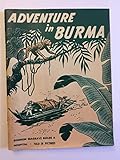
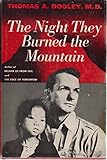
![Dr. Tom Dooley's three great books: Deliver us from evil, The edge of tomorrow [and] The night they burned the mountain](https://m.media-amazon.com/images/I/51yhTWJM9rL._SL160_.jpg)

